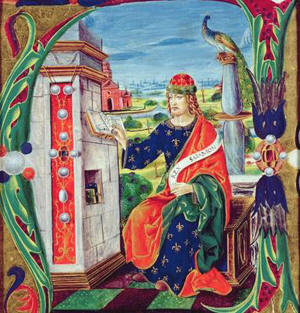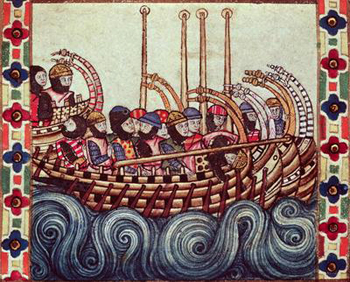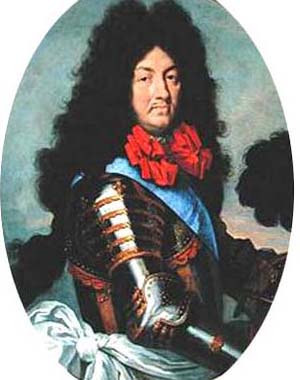 |
Organic Society
Discerning the Dynamism of
Individuals & Peoples
Plinio Corrêa de Oliveira
One can distinguish the good and the bad sides in the human soul, or, if you wish, the new man and the old. In the old man one finds various defects; in the new man, qualities. The good aspects feed on one another reciprocally, as do the bad. Further, the qualities oppose the vices in such a way that they are in a continuous battle. Sometimes, however, this fight takes on a relationship of coexistence.
For example, let us envision a man who is tempted to kill someone. To fight this temptation, he diverts his mind by thinking of something pleasant, let us say, he pretends that he won the lottery. As he tries to flee the first temptation, however, he falls into the indolence of an imaginary dream of wealth, which is just another temptation, albeit more subtle than the first.
Perceiving this, he diverts himself again by picking up a book about medieval heroes. However, his pride leads him to put himself in the role of each of these great personages. Doing this, he falls into a kind of adoration of himself.
Here we can see how the different defects inter-relate among themselves, even when the individuals intention to fight the temptation is good. His spiritual life is so deteriorated that he is incapable of taking a step without his bad side catching him in one way or another. So, he marches not from bad to good, but from greater evil to lesser ones, and he ends by being foiled by his defects.
On the contrary, if he quashes his bad tendency to kill someone by an appeal to honor, and not the desire for pleasure, other good qualities he has will awaken and emerge in their full colors. For example, as he thinks about his honor, his faith increases and shortly he will be having recourse to the supernatural, more prayer, etc.

The dynamism of the Chosen People shone especially in King Solomon |
Thus, the different states of spirit of a man find in him correlations and mutual supports or oppositions and fights.
Analogously, this takes place in the life of a country. I believe a knowledge of this is indispensable to understand the Tendential Revolution. The very fiber of the life of a country is formed by the inter-relationships played out by its defects and qualities.
While the moral aspect of this analysis is the more important one, there are also cultural and intellectual facets to consider, as well as the ways a people exercises its will or works. These factors must be added to the picture to have an objective overview of a people's psychology.
But one should not remain only in a kind of static analysis of a photo that reveals the present moment of that psychology. He should observe the formation of the below-the-surface currents of psychological inter-influences not only to understand the present, but also to know what that people will be doing and thinking tomorrow. To be able to discern these elements in the psychology of a people is a form of prophetism that enables a person to comprehend the most subtle aspect of reality in the present, as well as see the direction a people is heading. With this understanding, he is able either to stimulate that course for the future or to stop it.
This is not something one apprehends coming from ground zero, like the student who learns how to be a lawyer by attending law school. This is a vocation that God gives some men. What each man called to this must do is understand and love his vocation and carry out his own role. If he does this, things start to fall into the right places and he can advance. The first presupposition of the question, its A,B,C is that one must be himself rather than imitate others, nurture human respect, dream about worldly success or concede to temptations of impurity.
What follows is an attempt to encourage us to assume the role we were called to play in this orientation of persons and peoples.
Dynamism of individuals, families & nations
In the immense chess game of History, God chooses to give men different kinds of dynamism, by means of angels acting over nature. As on a chess board, here is a horse that is more powerful, there is bishop that is weaker, over there a tower that seems indestructible but has termites undermining it. A gigantic chess match - made up of millions of smaller chess games - is being played at every given moment of History. God distributes the dynamisms and the graces in such way that in large measure He orients the play, without limiting the free will of the human participants.

The Crusades, a good dynamism felt still today |
So, the knowledge of what will happen in the future supposes an understanding of these different dynamisms: what they are, who has them, and how they develop. Individuals, families, cities, states, countries and areas of civilizations have their different dynamisms.
For example, in Western Civilization there were two enormous dynamisms acting in Europe: its history was driven by a good cyclone, the Crusades, and also by a bad one, the Muslim invasions. The force of these cyclones conditioned the direction of History for centuries.
There are men who correspond to grace and fulfill their vocations dragging whole historical eras with them or there are others whose sins have analogous consequences. They unleash dynamisms, they bring together charges of energy that were dispersed, make them surge forward. Charlemagne was one of these men. He synthesized heroism, grandeur, majesty, magnanimity, generosity to the poor and dedication to the Church in such a way that, until today, those qualities in him shine and influence us in a good way.
This is not a myth or a fantasy. It is the reality we can feel in our souls. Those who say this is a myth are the ones who are unable to see any of this. It is like the deaf man who accuses all music of being a myth because he is unable to hear it. He would be more humble and render a better service to all by just admitting, "I am deaf."

A portrait of King Louis XIV |
A man who epitomized the ideal of a King was Louis XIV of France. We know that his moral life was gravely censurable, but so was that of Solomon in the Old Testament. Notwithstanding, Solomon is considered the King par excellence of Antiquity. Louis XIV plays this role in History. In his time, all the Kings of Europe followed his actions and tried to imitate him. This was not just because they wanted to mimic him moved by worldliness; they looked to him because of the strength of the dynamism God had given him that influenced his whole century.
We can also see this dynamism in the roles God assigns to peoples in History. It is very beautiful to see when a dynamism enters a people and illuminates it from within; henceforth everything that people does takes on a special brilliance. This can be a natural, supernatural or preternatural phenomenon. As a consequence of that dynamism, a people become splendorous.
In the Old Testament, this happened with the Chosen People in the golden phase of its history, that is, during the kingships of David and Solomon. The episode of the Queen of Sheba traveling from afar to see King Solomon was a repercussion of the brilliance of the vocation God had given to the whole people that shone especially in him.
In the history of the New Testament, the French people received a similar grace of predilection at the baptism of Clovis, when France became the first-born daughter of the Church.
The history of a people is in many ways the history of this splendor that dwells in it. At a certain point, however, that splendor begins to diminish, as it did in France after the French Revolution. Either someone reignites that splendor or the dynamism fades and nothing goes forward anymore. These are some samples of the mysterious crescendos and decrescendos of History.
This is a general view of what I consider the deepest layer of reality with an indication of the roles played by the natural, supernatural and preternatural in it.
Continued here

Posted January 6, 2012

  | | Prof. Plinio |
Organic Society was a theme dear to the late Prof. Plinio Corrêa de Oliveira. He addressed this topic on countless occasions during his life - at times in lectures for the formation of his disciples, at times in meetings with friends who gathered to study the social aspects and history of Christendom, at times just in passing.
Atila S. Guimarães selected excerpts of these lectures and conversations from the transcripts of tapes and his own personal notes. He translated and adapted them into articles for the TIA website. In these texts fidelity to the original ideas and words is kept as much as possible.

Related Topics of Interest
 Dom Sebastian, the Star of Portugal Dom Sebastian, the Star of Portugal
 The Personality of Charlemagne The Personality of Charlemagne
 Leadership Is Not Established by a Social Contract Leadership Is Not Established by a Social Contract
 Vocations of the European Peoples Vocations of the European Peoples
 The Clan and the Family The Clan and the Family
 Defending the Crusades Defending the Crusades
 R-CR in the Tendencies, Ideas, and Facts R-CR in the Tendencies, Ideas, and Facts

Related Works of Interest
|
|
Organic Society | Social-Political | Home | Books | CDs | Search | Contact Us | Donate

© 2002-
Tradition in Action, Inc. All Rights Reserved
|
 |
|